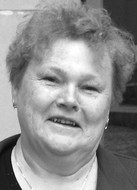Issue of spiritual nourishment and physical education in Austrian fiction of mid-19th century
Фотографии:
ˑ:
Dr.Sc.Philol., Associate Professor G.A. Loshakova1
PhD, Associate Professor Y.A. Lobina1
PhD, Associate Professor S.I. Gnedash1
1Ulyanovsk State Pedagogical University named after V.I. Ulyanov, Ulyanovsk
The mainstream Austrian fiction of that time gave much attention to the matters of spiritual nourishment and physical education. I. Kant was one of the first in the German cultural world to formulate the core developmental goal that is to give a high priority to persistent physical training and body tempering practices, never indulge into physical inactivity and self-pampering behaviours. E. Feightersleben, a prominent Austrian medic and poet, offered his own nourishment theory based on the Kant’s concepts. He believed in genuine unity of the human soul and body that both need to be perfected and kept in harmony. One of the A. Shifter’s (classic of the Austrian literature) characters lives a healthy and physically intense life, appreciates fresh air and physical activity and sleeps on a straw-stuffed mattress. Furthermore, many novels by A. Shifter and his contemporaries including Charles Sealsfield, for instance, promote a variety of healthy lifestyles dominated by physical activity, adventures and health improvement practices. Key characters and narrators in the novels of that time often act as pioneers, travellers and enthusiasts of physical practices (e.g. A. Shifter “Vienna and its residents in life pictures”). Hero of the Sealsfield’s novel “Nathan-squatter” is a highly active and physically strong individual that masters and develops the American soil and makes his children work hard and be physically active. On the eve and after the revolution of 1848, the Austrian novelists strived to prove that the social reality may be reformed rather by ethical and physical self-perfection that social unrests and overturns.
Keywords: mainstream Austrian fiction, spiritual nourishment, physical education, ethical and physical perfection.
References
- Kant I. Spor fakultetov [Faculty dispute]. Trans. Germ. (C.G. Arzakanyan, I.D. Koptsev, M.I. Levina). Kaliningrad: KSU publ., 2002, 286 p.
- Loshakova G.A. Nemetskaya klassika i khudozhestvennaya proza bidermeyera v Avstrii [German classics and fictional prose of the Biedermeier in Austria]. Ulyanovsk: USU publ., 2013, 239 p.
- Loshakova G.A. Khudozhestvennaya proza bidermeyera v Avstrii: zhanry i poetika. Dokt. dis. filolog. nauk [Fictional prose of the Biedermeier in Austria: genres and poetics. Doct. diss. (Philol) ]. N. Novgorod, 2014, 427 p.
- Mikhaylov A.V. Problemy analiza perekhoda k realizmu v literature XIX veka [Problems of analysis of transition to realism in the literature of the XIX century]. Yazyki kultury. Uchebn. posobie po kulturologi [Languages of culture. Study guide on cultural studies], Moscow, 1997, pp. 43–111.
- Khvostov B.A. Transformatsiya diskursa dietetiki v tvorchestve nemetskoyazychnykh pisateley serediny XIX – nachala XX vv. [Transformation of the discourse of dietetics in the works of German-speaking writers of the mid-19th - early 20th centuries]. Elektronnoe prilozhenie k sborniku XXVI “Chelovek, zdorovie, fizicheskaya kultura I sport v izmenyayuschemsy mire” [Electronic supplement to the collection XXVI ‘MAN, HEALTH, PHYSICAL CULTURE AND SPORT IN THE CHANGING WORLD’], Kolomna, 2016, pp. 65–70.
- Feuchtersleben E. Zur Diätetik der Seele Available at: http://gutenberg.spiegel.de/buch/-2442/1
- Sealsfield Ch. Nathan, der Squatter-Regulator. Berlin: V. Neues Leben, 1955, 77 p.
- Stifter A. Ausflüge und Landpartieen. Die Mappe meines Urgrossvaters. Schilderungen. Briefe. München: Winkler Verl., 1986, pp.426 – 442.




 Журнал "THEORY AND PRACTICE
Журнал "THEORY AND PRACTICE